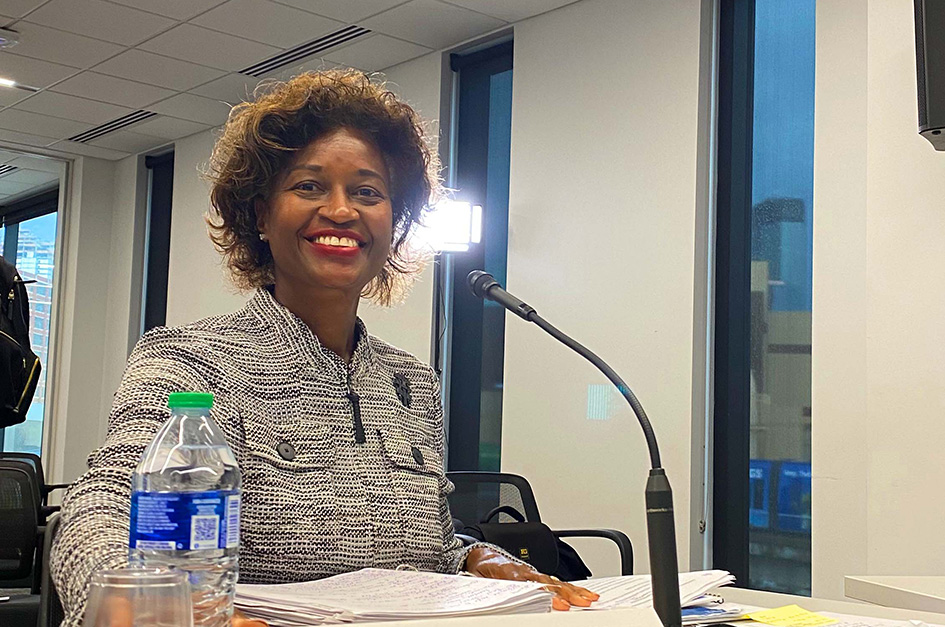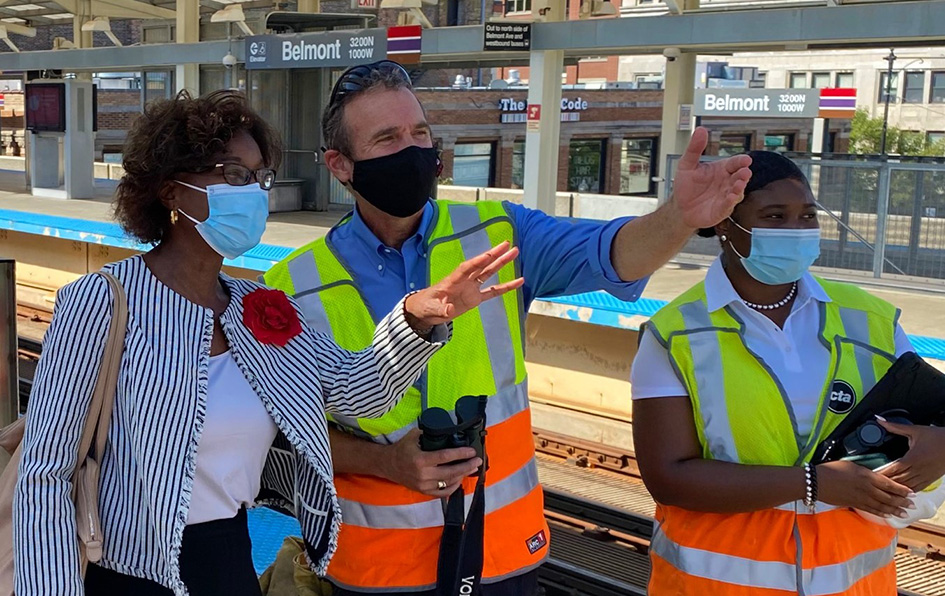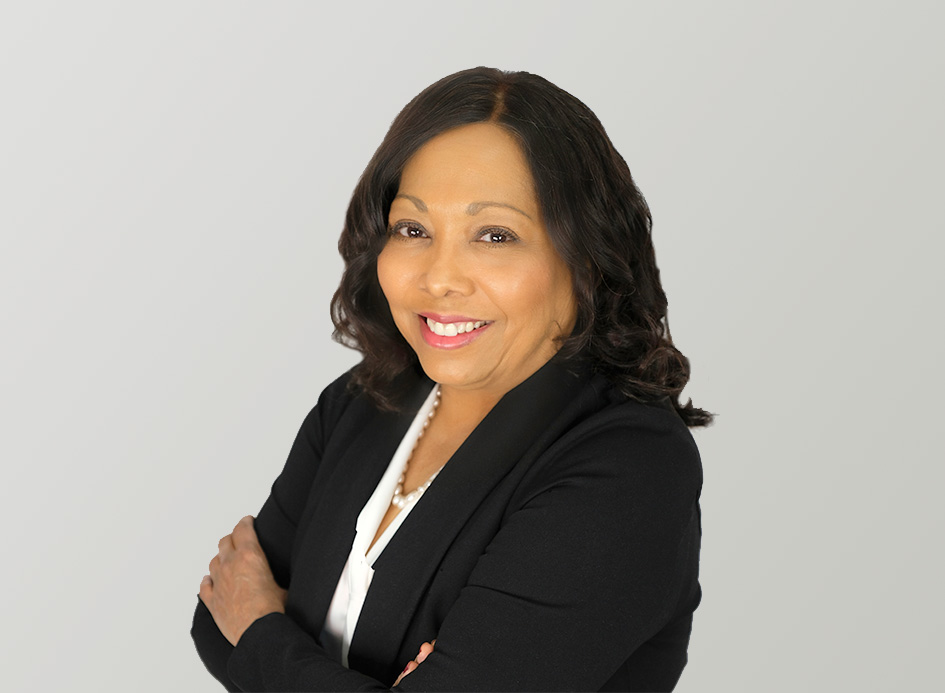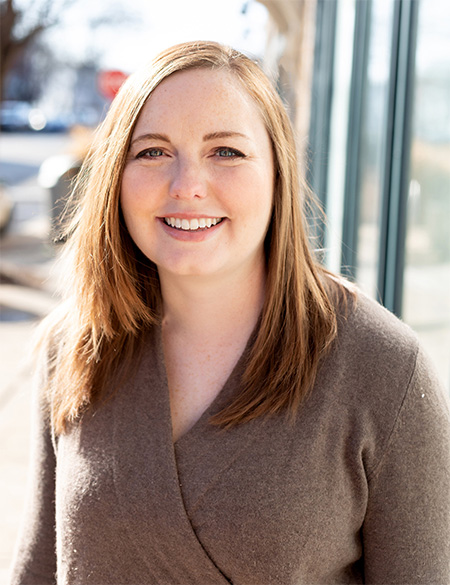Race, gender, disability?
These women have successfully overcome these obstacles while serving their country.

When she was in her last year at Bradley, Nuria White Fernandez ’82 decided to interview with a Peoria-based company she believed would be a good fit. She thought the interview went well.
But a classmate who had interviewed with the same company warned Fernandez not to be disappointed if things didn’t work out since no one at the firm looked like her.
“Of course, I never got the call,” said Fernandez.
Nearly 40 years later, things were different. It was just after the 2020 election and President Joe Biden’s transition team wanted to gauge her interest in joining the Department of Transportation’s Federal Transit Administration (FTA). At the time, Fernandez was the general manager and CEO of the Santa Clara Valley Transportation Authority in California, which serves more than 2 million people in Silicon Valley.
After an exhaustive process that included a round of Senate hearings via video conference, Fernandez became the newest FTA administrator in May 2021. The confirmation capped a 35-year career that saw her in high-profile transportation jobs in places like New York, Chicago and Washington, D.C.
“I’ve been constantly breaking through glass ceilings. I am surprised that I haven’t had any stitches on my head,” said Fernandez of her career. “… I’m an Afro-Latina engineer in transportation and that just says it all. Every position I’ve ever held, I was the first … When I started moving into management and then as the head of a department for an organization, I noticed consistently I was the only woman in the room of color, and in some instances, the only woman, period.
“But it also made me realize I couldn’t give up because if I wasn’t there reaching back and pulling others up with me, who will? If not me, then who? At times it felt a bit frustrating that every time they needed to get someone to speak about something or to advocate, they always came to me for that because there was no one else.”
As administrator of the Federal Transit Administration, Fernandez oversees funding for more than 2,000 transit agencies across the country in urban, suburban and rural areas. A variety of governmental entities run the agencies, while federal grants help pay for planning, operations and maintenance, along with rolling stock like buses, trains and ferries. She previously worked at FTA earlier in her career after then-President Clinton appointed her acting administrator in 1997.
Fernandez rode buses daily growing up in Panama, but the private companies that owned them only focused on profitable areas, leaving some people with few or no options.
“When I came to the U.S. and saw how much more organized the bus system was, that it was run and operated by a county, a city or by an authority that had oversight by officials, I said, ‘Wow, this is a good system.’ And interestingly enough, if you go to Panama now, that’s how it’s evolved.”
When Fernandez started at Bradley there were few women engineers, either on the job site, the classroom or even her family. She and her brother, Celso White ’84, were the first engineers and the only siblings among their relatives to be Bradley Centurions. But there were shocks.
“I was thousands of miles away from home … It was my first time living outside of Panama. And not only was I moving to the U.S. by myself to go to college, but I was going to college in a community that was not a major metropolitan area. And it was the Midwest, so it was going to be my first time experiencing winter.”
Despite these bumps, she recalled a campus that taught lessons in and out of the classroom. “They rolled out the red carpet for all the international students. I got to learn about other parts of the world that I was not familiar with and got to know people directly through this program. It was a lot more social.”
She said growing up in Panama, she was unaware of any bias, acknowledging that might be because she wasn’t paying attention. Her parents raised her to believe she could do or be anything she wanted.
“I didn’t grow up in that environment where you constantly have all of your senses in overdrive,” said Fernandez. “Like ‘what did they say? Why did they say it that way? Was it because of me? Was it because of what they think of me?’”
Moving to the U.S., however, meant she had to adjust to a different reality. Her first job after post-graduation work in Panama was with the Chicago Department of Public Works. Starting at an organization with a diverse workforce helped.

“I was paired up with an engineer from Tehran (Iran). My supervisor was from Pakistan. Our overall supervisor was from India, and I worked very closely with two engineers from the Philippines and two from Russia that had just come into Chicago,” said Fernandez, who earned an MBA at Chicago’s Roosevelt University in 1990. “It was a little United Nations, we were all immigrants together and we supported each other.”
This and other career experiences, plus her time at Bradley, showed her the importance of empathy and mentoring. For two decades, Fernandez has been a mentor and worked to connect others with professionals who can mentor them.
“I realize that everyone’s experience is not mine or even similar to mine. And I have to keep that at the front when dealing with different situations,” she said. “… When decisions are made, it’s not the people you know who are in that room, but people who know people. Given the number of women in the transportation field, they’re just not at the management and upper management or CEO level yet.”
While much of the U.S. transportation network focuses on automotive culture and needs, Fernandez said attention on and appreciation for public transportation is growing, even amid concerns about exposure and mask mandates in the wake of the COVID-19 pandemic. In addition to relieving road congestion, it provides options for those who don’t own a vehicle or use ride-sharing services like Uber.
She said the infrastructure legislation passed by Congress and signed into law by President Biden November 15 had a substantial investment — almost $91 billion — in public transportation. Fernandez noted how the funds will help transit agencies in underserved rural communities and tribal nations.
“(It will) bring with it more opportunities for those communities … to reach jobs in other areas where the labor rates may be higher, the pay scale may be higher, and educational opportunities outside of their immediate communities.
“We see ourselves as that bridge, the metaphorical bridge between people and access to opportunity,” added Fernandez. “I just think that transportation has a transformational effect on people’s lives.”

Peoria’s imposing City Hall has stood for well over a century as the seat of city government, listed on the National Register of Historic Places. As an at-large City Council member and active in many civic organizations, Rita Bryant Ali M.A. ’92 walked in and around the building countless times.
But when she arrived there May 4, 2021 to be sworn in as Peoria’s first female mayor, and first mayor of color, the feeling was surreal.
“It was surreal because I came to Peoria when I was 6 years old … Peoria has been my home, but I had never imagined that I would become the leader in terms of becoming the mayor,” Ali said. “And then to actually be sworn in as the first woman and the first person of color, it was just awesome.”
Ali was inspired as a child by the story of Supreme Court Justice Thurgood Marshall and intended to be a lawyer.
“I had done some work even as a teenager in the area of civil rights. Life changes things for you. I became a parent younger than I had expected, so I had some kinks in the road, but they actually helped to make me stronger and helped me become the person that I am.”
While not making it to law school, Ali piled up impressive academic credentials — along with her undergraduate and Bradley degrees, she has an MBA and a doctorate in organization and management. She has worked mostly in the public sector, at jobs ranging from vice president of workforce and diversity at Illinois Central College to a program coordinator for the city of Peoria and with the state Department of Human Services.
“I like being first,” the former community organizer said. “I was Bradley University’s first director of multicultural student services, I was Illinois Central College’s first director of diversity, I’m the city’s first woman and African-American mayor.
“And there are other areas where I’ve found myself being the first to do something or the first to achieve something. I want to be a pace-setter, and I want to be bold, so that others can say, ‘Somebody did it. She did it. Maybe I can do it, too.’”
She remembered the family owned neighborhood businesses of her youth and the camaraderie and vigilance of people who watched out for each other and all children in the neighborhood. But Ali also noted her lack of role models in positions of authority. She was in seventh grade when she had her first Black teacher.
“Because she was my teacher, that’s when I started thinking that I could be an educator, too. But ... I wasn’t there until that experience.”
Throughout her career, Ali experienced racism and sexism in subtle and not-so-subtle ways. She said her reaction was not to assume malice but rather a difference in personal history and perspective. Being born in the Show-Me State also impacted her response.
“I always said, ‘I can show them better than I can tell them.’ When I’m underestimated, and I do get underestimated because I’m Black, because I’m a woman, then I work to prove myself. Being underestimated can be my greatest strength sometimes … because it surprises people, but it’s because they set the bar too low for me in the beginning.”
Many people have asked her feelings about being Peoria’s pioneering mayor.
“I finally have the answer that I feel most comfortable with, and that is it feels right,” Ali said. “It doesn’t feel awkward, it doesn’t feel like I’m out of place. It feels like I’m aligned with where I should be.”

In 2014, Bridget Walsh Moore ’10 and her boyfriend-now husband, Greg, were competitive runners. They trained for half-marathons with the goal of running the full 26.2 miles one day. When she started having pain in her right knee and right hip, Walsh Moore didn’t pay attention at first, since the pain often went away, especially after some physical therapy.
Her symptoms came from a softball-sized cancerous tumor in her hip. The diagnosis? Stage 3 osteosarcoma, a bone cancer that led to a lifesaving amputation of Walsh Moore’s right leg and a year of chemotherapy.
About a year into her recovery, however, she discovered a bigger issue.
“Every time I talked to a doctor or a nurse, they would always mention how great my insurance was and how lucky I was to have it,” she said. “And it really bothered me that everyone was just shocked … This is such an obvious support. Of course I need it. What do you mean, a lot of people don’t?”
Her experience was part of the reason Walsh Moore decided to run for the Missouri House of Representatives. Elected last November, her platform revolves around health care and disability rights, education and the environment, among others.
“Being an adaptive person now, with my new-found disability, it was a whole new world for me,” she said of her reasons to run for office. “I knew the sidewalks weren’t well kept and they’re not everywhere you need them to be … And I’m the daughter of a school teacher. I didn’t like the way public education is going. I didn’t like that Missouri ranks dead last in starting teachers’ pay and 49th in education overall.”
It took Walsh Moore a long time and numerous conversations to overcome her doubts. Part of that stemmed from the small number of women — less than 25% — in the Missouri House. However, that hasn’t stopped her from having mentors, like Reps. Crystal Quade, LaDonna Appelbaum and Sarah Unsicker.
“I have found all the women to be very supportive. And because there are so few of us, we tend to stick together.”
Walsh Moore admitted despite the solidarity, there are times she’s hit the glass ceiling when trying to get legislation passed. And being in her first year has sometimes meant those bills weren’t a priority.
Despite the challenges, Walsh Moore loves what she’s doing and hopes to finish all eight years in the House. The rewards are knowing what she does matters.
“I get to listen to people and help try to improve their lives,” she said, noting how constituents contact her regularly with a wide range of issues. “Even if I can’t do anything big in sweeping legislation … I have the resources and the knowledge to help them. That is so rewarding and it’s really brought a sense of purpose to me.”
Post Your Comments